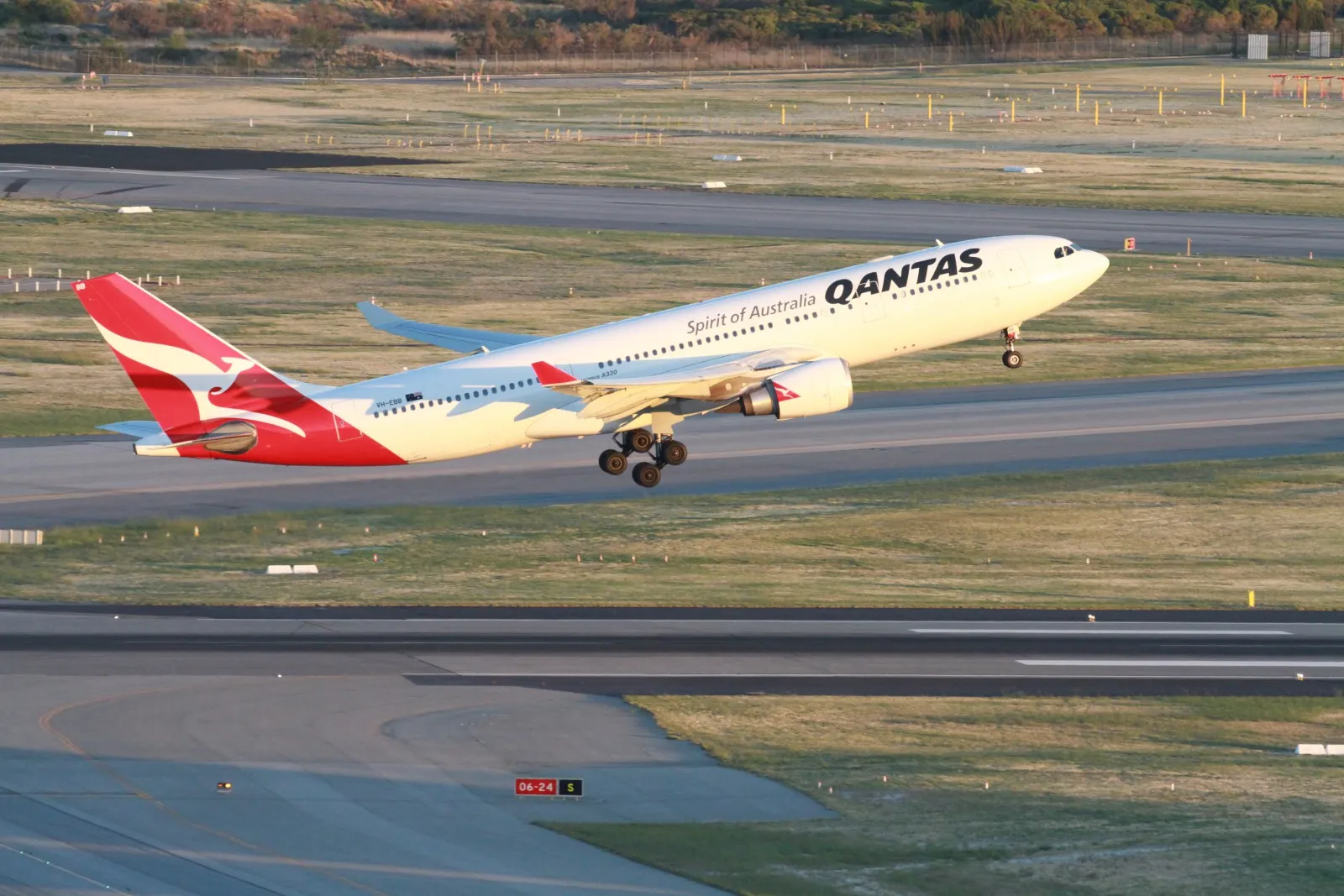
QANTAS UPBEAT DESPITE LOSS OF $1.8 BILLION
Aug 24, 2022

Qantas Airways is maintaining a positive outlook despite reporting a significant loss of $1.8 billion. The airline faced substantial challenges due to the ongoing impacts of the COVID-19 pandemic, including reduced travel demand and increased operational costs. However, management remains optimistic about a recovery as travel restrictions ease and consumer confidence improves. Qantas is focusing on enhancing its services and expanding routes to attract customers back to the skies. The airline's strategic initiatives aim to position it for future growth, reflecting resilience in the face of adversity within the aviation industry.
Qantas Airways has recently faced significant financial challenges, reporting a staggering loss of $1.8 billion. Despite this, the airline remains optimistic about its future prospects and is taking strategic steps to recover from the downturn. In this article, we will explore the factors contributing to Qantas’ loss and the measures being implemented to turn the tide. This discussion will also highlight the airline's resilience and adaptability in the face of adversity.
Understanding the $1.8 Billion Loss
The COVID-19 pandemic has had a profound impact on the aviation industry, and Qantas is no exception. The drastic reduction in passenger numbers owing to travel restrictions and border closures has been a primary factor leading to their financial losses. The airline's ability to generate revenue has been severely hampered, with international travel experiencing a particularly slow recovery.
In addition to the pandemic's effects, rising fuel costs and operational challenges have contributed to the overall financial strain. As the aviation industry begins to recover, Qantas is focused on navigating these turbulent waters while enhancing its service offerings.
Strategic Measures for Recovery
While the loss of $1.8 billion is significant, Qantas is implementing a series of strategic measures aimed at regaining profitability. Here are some of the key initiatives that the airline is pursuing:
| Initiative | Description |
|---|---|
| Cost-Cutting Measures | Qantas has initiated various cost-cutting measures, including workforce reductions and operational efficiencies, to manage expenses. |
| Fleet Modernization | The airline is investing in a more fuel-efficient fleet to reduce operational costs and enhance environmental sustainability. |
| Route Optimization | Qantas is reviewing its route network to focus on profitable routes and adjust its capacity based on demand. |
| Customer Engagement | Enhancing customer experience through better service offerings and loyalty programs to retain existing customers and attract new ones. |
Market Recovery and Future Outlook
As the world begins to open up post-pandemic, Qantas is optimistic about the recovery of air travel. The airline is witnessing a gradual increase in domestic and international bookings, indicating a rebound in consumer confidence. Analysts are forecasting that the demand for air travel will continue to rise, particularly during peak holiday seasons.
Moreover, Qantas is strategically positioning itself to capitalize on emerging travel trends. For instance, the airline is focusing on connecting key markets and enhancing its presence in Asia, which is expected to be a significant driver of growth in the coming years.
Commitment to Sustainability
In addition to financial recovery, Qantas is equally committed to sustainability initiatives. The airline recognizes the importance of reducing its carbon footprint and is working towards achieving net-zero emissions by 2050. Key sustainability initiatives include investing in sustainable aviation fuel and exploring innovative technologies for more efficient operations.
This commitment to sustainability not only addresses environmental concerns but also appeals to an increasingly eco-conscious consumer base, enhancing Qantas’ brand reputation and customer loyalty.
Conclusion
Despite the daunting loss of $1.8 billion, Qantas Airways remains upbeat about its future. With a robust recovery strategy in place and a focus on customer engagement and sustainability, the airline is well-positioned to navigate the challenges ahead. The resilience demonstrated by Qantas in the face of adversity showcases its commitment to not only returning to profitability but also to setting new standards in the aviation industry.
As Qantas continues to adapt to the evolving landscape, it serves as a prime example of how strategic planning and innovation can drive recovery in challenging times. Stakeholders and customers alike can look forward to a revitalized airline that prioritizes both business success and environmental responsibility.
Related Articles

Explore Thailand: The Best Islands to Visit for Paradise, Adventure, and Relaxation

The Ultimate Guide to the Best Islands in Thailand for Your Next Getaway

Do babies need passports? How to get a passport for a newborn

How to get a U.S. passport fast: here’s how to expedite the process

What is Mobile Passport Control: 5 reasons why you should use it

SENTRI vs. Global Entry: A detailed guide

Do you need a passport to go to the Bahamas? Let’s find out

Do you need a passport to go to Mexico? A detailed guide

Do you need a passport to go to Canada? We got the answer

Do You Need a Passport for a Cruise: An Essential Travel Guide

Booster Seat Requirements: All the Rules to Follow in Your Rental Car

What Are the World’s Most Powerful Passports, and How Does Yours Rank?

How to Take a Passport Photo at Home: A Helpful Guide

You've got to have heart! Southwest's new livery

Your opinion: Should water be free on low cost carriers?

Young women bolder than guys as solo travellers
